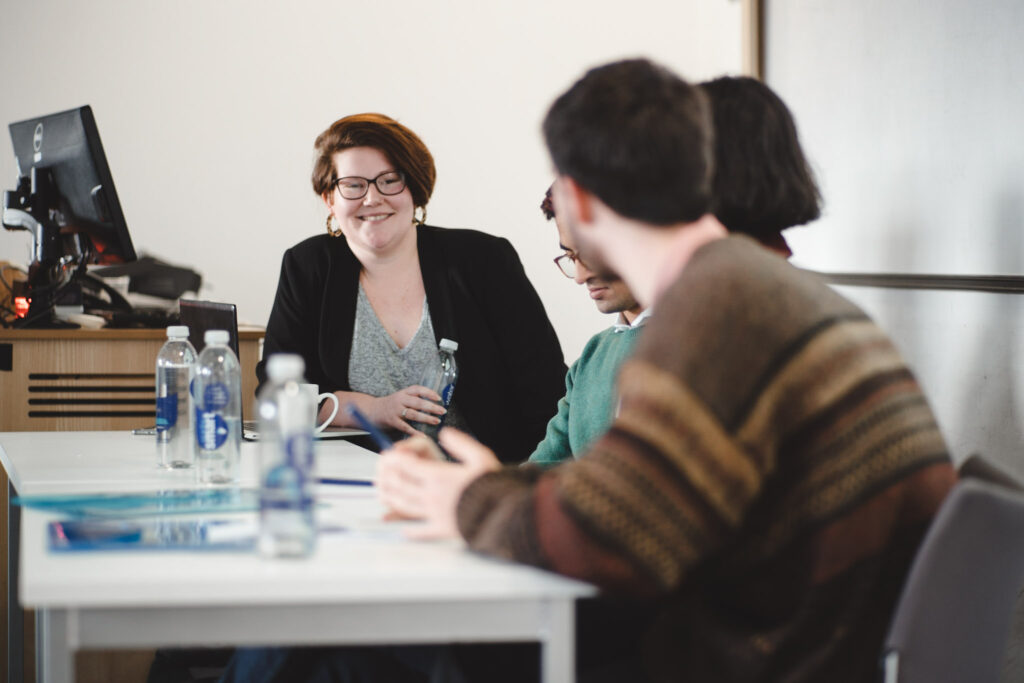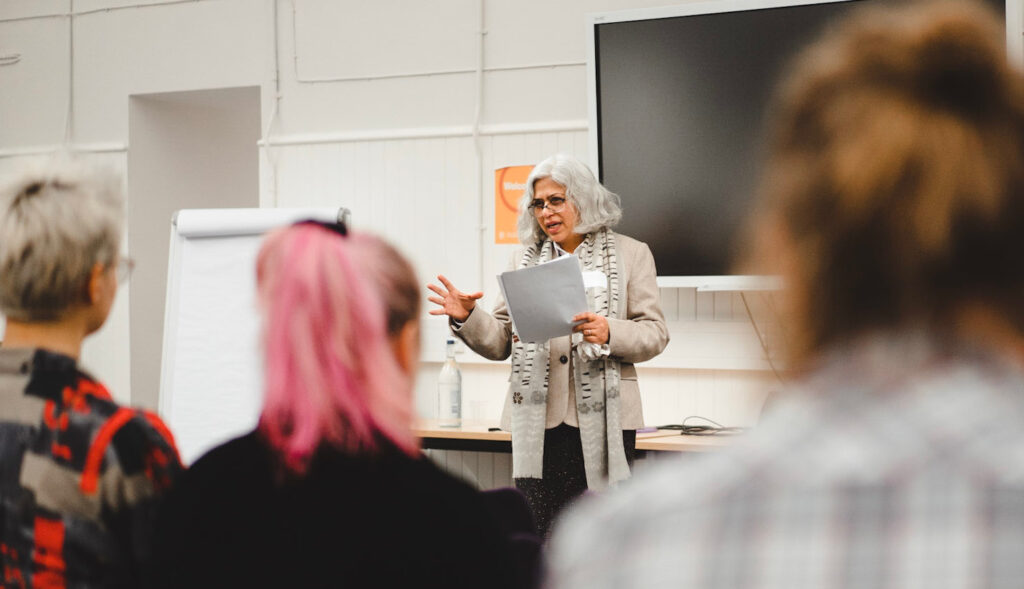
In this post, former Philosophy students, Viktoria Matejova and Tommy Zhang, describe how they organised the successful Mary Shepherd Philosophy Conference for both staff and student to enjoy…
In January, we, along with other students, hosted the Mary Shepherd Philosophy Conference in George Square, which focused on race, gender, and discrimination. We invited speakers from all over Scotland and England to present their research in seminars over two days. On Friday 25th and Saturday 26th January, students of philosophy and researchers alike came and went to the talks, discussions and dinners. We looked at feminism on a global scale, discussed how to conceptualise sex and consent, examined how to de-colonise the university system, and much more.
The aim was to provide a space for students to engage in academic discussion, starting from undergraduate level, and for everyone to mingle, network and learn from each other. The focus was on feminist philosophy as well as philosophers from under-represented groups because the discipline is lagging behind other humanities. For instance, less than 20% of professors are women, and there are only a handful of black philosophers. We think our event succeeded in boosting a sense of community amongst philosophy students — especially those from marginalised backgrounds!
We did not want our conference to be one-sided, with students passively taking in what invited speakers were saying, so we had activities in place to facilitate student-speaker interaction. This included collaborating with staff from our university, which we could focus on more this year thanks to the Student Partnership Agreement Fund. Thanks to additional funding we received from the PPLS school, the Philosophy Department and the IAD Action Fund, we could also afford to make the event free to attend, which was an important accessibility requirement for us. Dr Aidan McGlynn provided us with further useful pointers on accessibility at conferences.
The conference opened with a student presentation panel on Friday morning, where two undergraduate students presented their essays. A Teaching Fellow from the Philosophy Department, Dr Jade Fletcher, kindly agreed to provide a response, while our Journal editor, Tanuj Raut, chaired the session. The essays, along with other selected ones, have been compiled into a journal from the conference. Collaborating with an academic helped give precise feedback to the presenters and showed that independent research should be taken seriously at any level. Similarly, the presence of both career academics and students at the Q&A sessions post-talks was fruitful in terms of questions and ideas.

On the second day, we had two discussion groups: one about the impact of #MeToo within academic philosophy, and another one on the themes of civility and emotion. The latter one was only open to women, non-binary people and people of colour in order to foster a space where they could feel more open and safe to share ideas. The #MeToo group was created ad-hoc because of a talk cancellation. We used the time for an informal discussion, which turned into an invaluable opportunity for staff to share their experiences with students, and for greater solidarity and understanding. The discussion group was comprised of students in attendance and speakers from the conference.
Finally, we also worked with staff on getting the word out about the conference within the university, and on a campaign that emerged from the event. Viktoria, one of the conference organisers, called on the city to build a statue of Mary Shepherd in order to raise awareness of lesser known women philosophers from the past. Dr Simon Fokt, then a learning technologist at the PPLS school, was especially helpful in helping set up and run the campaign after he came to the conference to promote the Diversity Reading List.

Following the success of this year’s conference, we will build on our commitment to bringing people within the university together and make the event even more diverse and accessible in the future. To researchers in race and gender studies, these are common questions: Are the solutions I propose applicable to real people facing these problems? Am I well informed of the problems women and people of color face every day? Activists and academics alike find that dialogue and discussion can help understand these problems. We hope that in our work with the Mary Shepherd Philosophy Conference we can foster a tradition of careful listening and meaningful discourse for all students and staff at Edinburgh.

